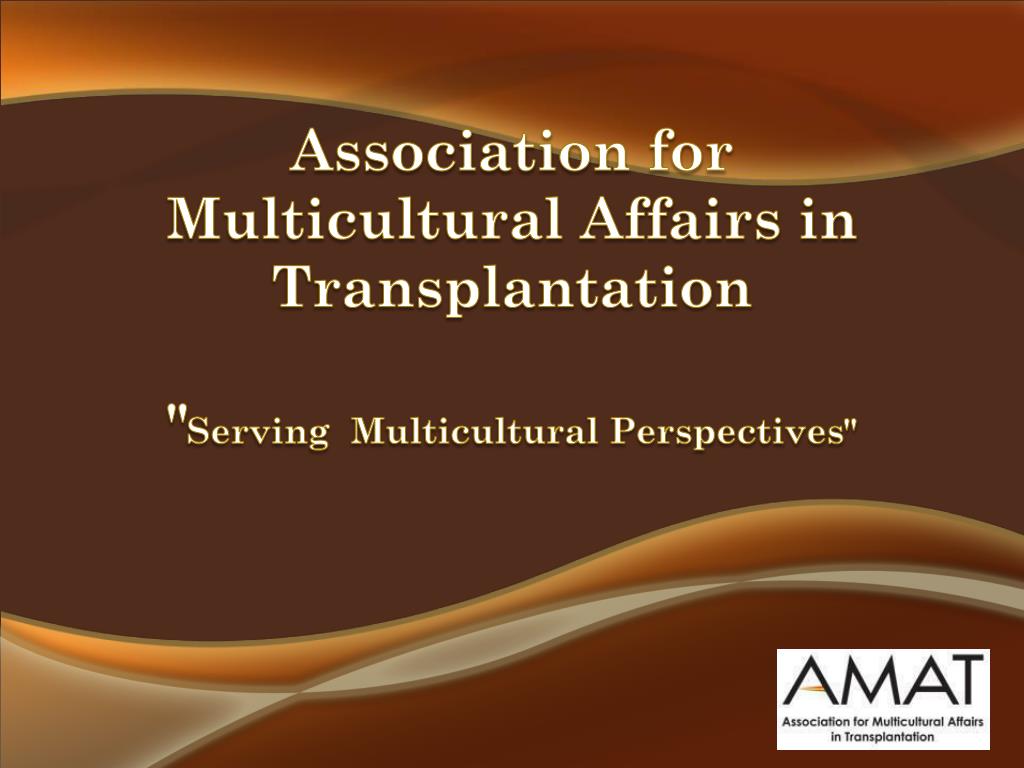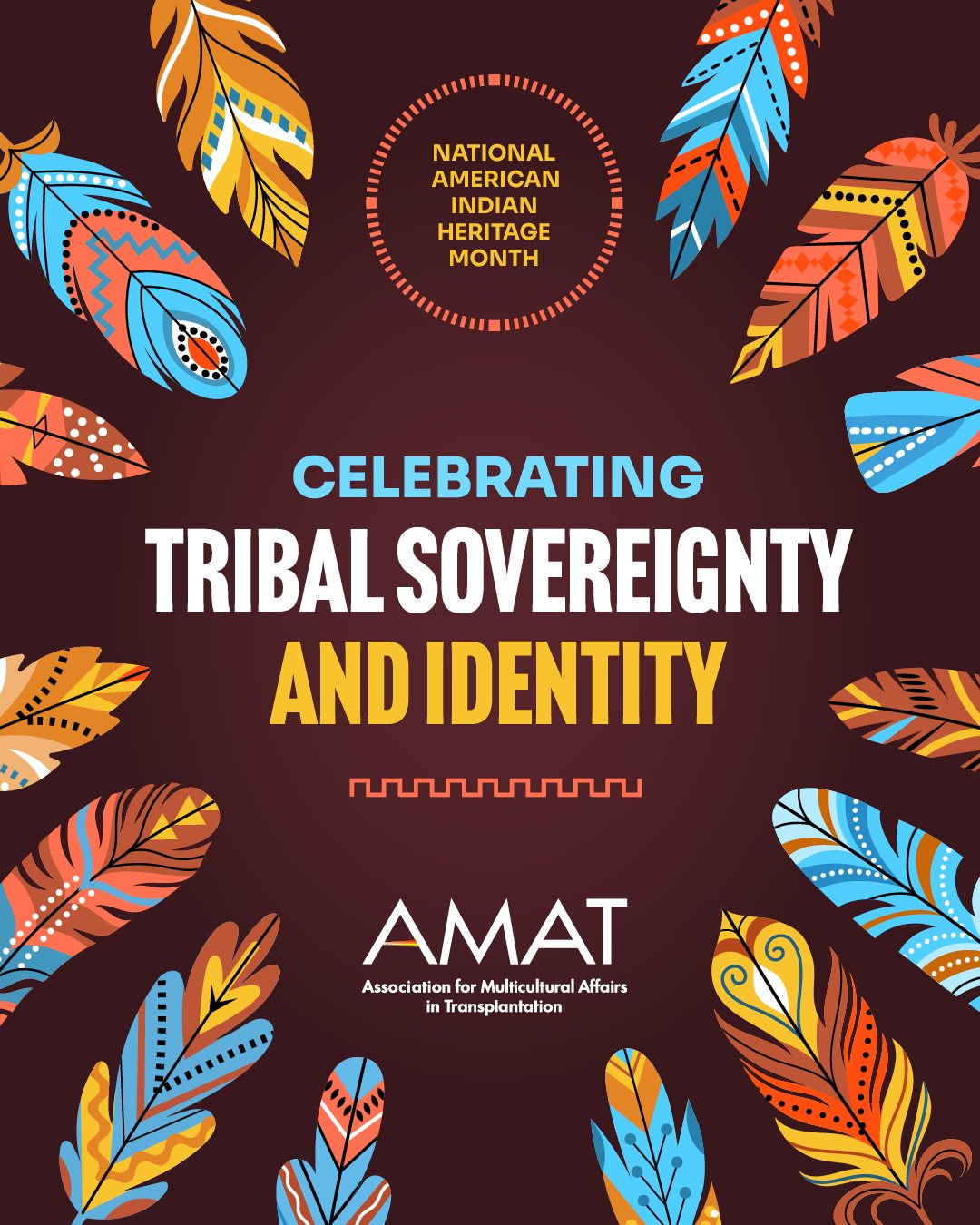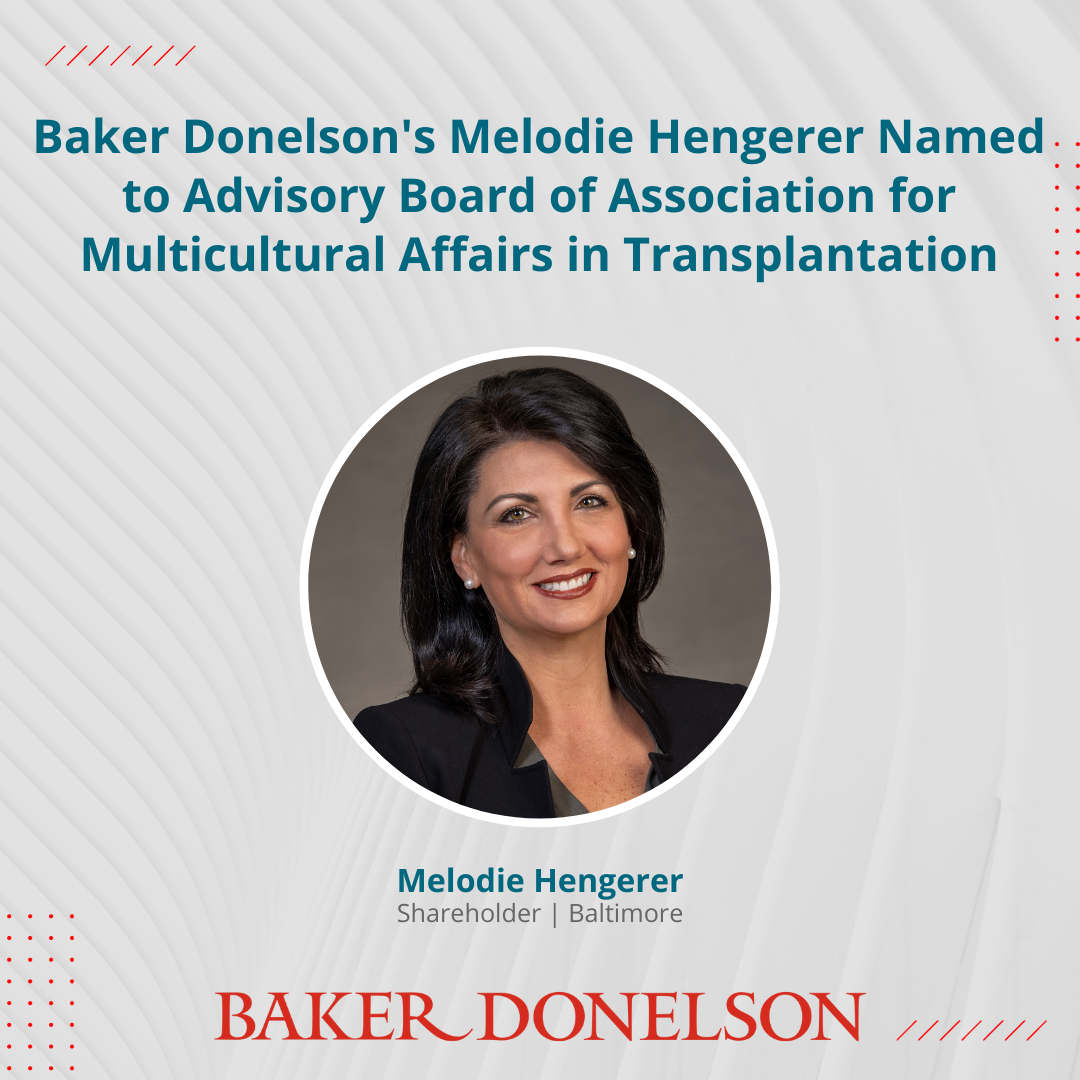Association For Multicultural Affairs In Transplantation

The air in the conference hall buzzed with anticipation. Sunlight streamed through the large windows, illuminating faces of diverse backgrounds, all united by a common purpose. A soft murmur filled the room, punctuated by excited greetings and the rustling of programs, a symphony of hope and dedication focused on a singular, profound mission: bridging the gap in organ donation and transplantation for multicultural communities.
At the heart of this gathering, and countless others like it, lies the Association for Multicultural Affairs in Transplantation (AMAT). This vital organization works tirelessly to address the disparities in organ donation and transplantation that disproportionately affect racial and ethnic minorities, ensuring that all individuals have a fair chance at life-saving treatment.
The Urgency of the Mission
Organ donation and transplantation are life-saving miracles, yet access to these treatments is far from equitable. The AMAT was founded to confront this reality head-on. It serves as a beacon of hope for those who face significant barriers to receiving the care they desperately need.
For decades, statistics have painted a stark picture. According to the Health Resources and Services Administration (HRSA), racial and ethnic minorities are more likely to need organ transplants than Caucasians, often due to higher rates of diseases like diabetes, hypertension, and heart disease. However, they are also less likely to be organ donors, creating a critical imbalance.
This discrepancy has profound consequences. The wait times for organs are often longer for minority patients, leading to poorer outcomes and increased mortality rates. AMAT steps into this space with targeted education and outreach to close this gap.
The Birth of a Vision
The story of AMAT began with a shared vision among a group of passionate professionals. In the late 1980s and early 1990s, a growing awareness of the disparities in transplantation led several individuals to recognize the urgent need for a dedicated organization.
This core group of physicians, transplant coordinators, social workers, and community advocates saw the necessity of addressing these inequalities. They understood that cultural sensitivity, community engagement, and targeted education were critical to improving outcomes for multicultural populations.
These pioneers laid the groundwork for an organization that would champion the needs of underserved communities in the field of transplantation. The organization would work to change existing narratives and increase awareness of the need for organ donation within these communities.
Core Principles and Initiatives
AMAT's work is grounded in several core principles, including cultural competence, community partnership, and education. These principles guide their various initiatives and shape their approach to addressing disparities in transplantation.
One of the key pillars of AMAT's work is its commitment to cultural competence. Recognizing that cultural beliefs and values can significantly influence attitudes towards organ donation and transplantation, AMAT emphasizes the importance of tailoring educational materials and outreach efforts to specific cultural groups.
This involves understanding the unique perspectives, concerns, and sensitivities of different communities. AMAT also works to build trust and rapport with community leaders and organizations.
Another crucial aspect of AMAT's work is community partnership. AMAT actively collaborates with local organizations, faith-based institutions, and community leaders to reach diverse populations and promote organ donation and transplantation. By working through trusted community channels, AMAT increases credibility and facilitates meaningful dialogue.
Education plays a central role in AMAT's mission. The organization develops and disseminates culturally appropriate educational materials in multiple languages to raise awareness about the importance of organ donation and transplantation. These materials are designed to dispel myths, address common concerns, and provide accurate information about the donation process.
AMAT also conducts training programs for healthcare professionals to enhance their cultural competence and improve their communication skills when discussing organ donation with patients and families from diverse backgrounds. Their advocacy helps increase awareness and engagement.
Making a Tangible Difference
The impact of AMAT's work is evident in the lives touched and the progress made in addressing disparities in transplantation. Through its various initiatives, AMAT has empowered communities, educated healthcare professionals, and increased organ donation rates among minority populations.
AMAT has developed innovative outreach programs that target specific communities. These programs often involve partnerships with local organizations to host educational events, health fairs, and community workshops. They also use social media and other digital platforms to reach younger audiences and disseminate information widely.
AMAT actively advocates for policies that promote equity in transplantation. The organization works with policymakers, healthcare organizations, and other stakeholders to ensure that all individuals have equal access to organ donation and transplantation services.
In 2023, AMAT reported a significant increase in organ donation registrations among African American and Hispanic communities in several key regions, a testament to the effectiveness of their targeted outreach efforts. This kind of impact demonstrates the critical need for AMAT's work.
Looking Ahead
As AMAT looks to the future, it remains committed to its mission of promoting equity and access in transplantation for all. The organization recognizes that there is still much work to be done. It will continue to innovate, collaborate, and advocate for policies that benefit multicultural communities.
AMAT plans to expand its educational programs, develop new partnerships, and leverage technology to reach even more people. The goal is to create a world where everyone has a fair chance at life-saving treatment.
Dr. Velma P. Scantlebury-White, a renowned transplant surgeon and a past president of AMAT, has been a vocal advocate for addressing disparities in transplantation. Her work exemplifies the dedication and passion that drive AMAT's mission.
Her leadership and vision have been instrumental in shaping AMAT's strategic direction and impact. Dr. Scantlebury-White emphasizes the importance of cultural competence and community engagement in improving outcomes for minority patients.
Another key figure in AMAT's history is Dr. Clive Callender, who is known for his pioneering work in transplant surgery and his unwavering commitment to addressing health disparities. His legacy continues to inspire AMAT's work today.
A Future of Hope
The work of the Association for Multicultural Affairs in Transplantation is a powerful reminder of the importance of equity and inclusion in healthcare. It demonstrates the profound impact that can be achieved when dedicated individuals and organizations come together to address disparities and promote hope.
As the sun sets on another conference, the faces in the hall reflect a renewed sense of purpose. The journey is far from over, but with each step forward, AMAT brings us closer to a future where everyone has the opportunity to live a healthy, fulfilling life.
The AMAT is not just an organization; it's a movement, a promise, and a beacon of hope for multicultural communities in need of life-saving transplants.


